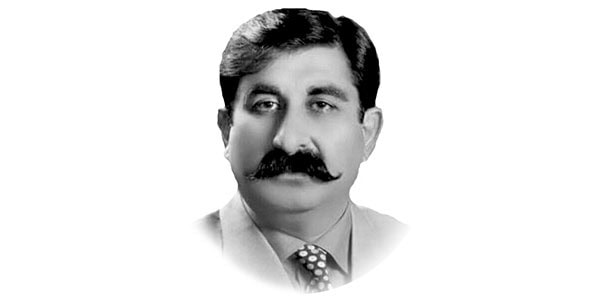Leadership
IN Pakistan, mostly political leadership belongs to the background of feudal society.This is the typical Pakistani politics where feudal leaders are most respected.
The elected leaders have always acted or performed as dictators. By a segment of the society, it is believed that political leaders are unable to solve the issues of the country and the nation.
The politics of Pakistan has been unable to develop a strong consensus on the political model.
Whatever consensus is developed among the power sharing parties they stay away from the political position soon after due to their own political gains and interests.
Their competing interests openly defame the Constitution and the norms and values of democracy.
The Constitution many a times became controversial because establishment took over and imposed the martial law.
If this tradition continues the participatory democracy can’t flourish. Our leaders also amended the Constitution without any consensus over the system.
Lack of open debate over the important national issues has slowed down the growth of shared framework for political action.
The political ruling elite develop a selective approach by excluding those who disagree with them.
Not only political elite suppress the opposition, several societal groups even create violence against the opposing groups who raise questions about their views and ideas.
The gradual growth of extremism, militancy and the sectarian movements within the societal structure in the early 1980s have caused the Free flow of views, ideas and information on the important national issues.
It gave rise to intolerance, increased the level of violence within the society. The extremist groups used hate speeches and accommodate violence within their structures.
Thus, the main effects of these activities were the cultural and social values, pluralism, diversification and religious harmony.
The process of democratization badly suffered because these groups were gaining strength within the society and political system.
Such conditions are not favorable to the growth of democratic norms, values and rule of law.
The Muslim League laid the foundation of Pakistan but failed to transform itself as national and federal party.
The Muslim League round around the persons and individuals. The other parties also could not give the alternative for the country.
Therefore, the political parties could not function regard to developing political model and stability.
The political parties of Pakistan lack the leadership, visionary human power and the scientific study of socio-political and economic problems.
The public gathering and mobilization may be useful but it cannot be an alternative for the socioeconomic and political problems.
The members of Parliament are always seen absent which shows the political non seriousness towards national issues.
Democracy has had faced strong troubles in Pakistan, the poor democratic credentials and weak institutions can’t lead democracy to prevail in the country.
The parliamentary system of government faced many ups and downs. The inheritance of undemocratic forces encountered the balanced democratic system of the State.
The external security threat and regional issues have affected the prospects of democracy in Pakistan.
Failure of democracy due to these problems faced by Pakistan and other factors were the leadership crisis, after the demise of Jinnah, and the failure of Pakistan Muslim League to become a national party or the identification of federal towards provinces.
The disintegration of national political parties leads the base for military to take its roots within the political framework of the country.
It was being propounded that the liberal democracy was inappropriate for Pakistan. The suspension of Constitution by the consistent military coups make it difficult to create strong political Institutions and the diversified ideas.
The process of democratization and political participation is assisted by the civil leaders and political parties within the country.
These are the most important vehicles of expression of interests and political mobilization in a democratic way.
In Pakistan, the political parties and democratic forces are weak and unable to perform their integral role in an effective way.
Their role has been suspended under the dictatorship due to which they have been badly affected.
The electoral process has suffered frequently, weak organizational structures, absence of socio-economic opportunities and lack of economic and financial resources.
The undemocratic behavior of political parties, personality-based politics, regional tug of war and ideological differences badly the political parties to function in a meaningful manner.
It also suffered with ideological confusion and visionless leadership. The ruling elite apply selective manners of democracy, take the handful and selective political leaders and exclude all other democratic political leaders.
This policy created the division among parties and institutions. Democratic institutions stabilize if the process is not disturbed by other forces.
The advocators of democracy must function in true spirit, should offer equal rights for all citizens and respect the free speech, emphasise diversified ideas and encourage free flow of information.
This may support creation of strong democratic culture within the country. The civilian rule and authority have been suspended by the frequent military takeovers.
That’s why the quality of democracy and the performance of political parties remained very poor.
The democratic culture and the values of democracy face strong challenges in Pakistan.
The poor performance of elected leaders and assemblies in the federation and provinces make democracy more complex.
They failed to build consensus over the norms of political system and drift towards confrontation, religious intolerance and extremism.
—The writer is editor, book ambassador, political analyst and author of several books based in Islamabad.










